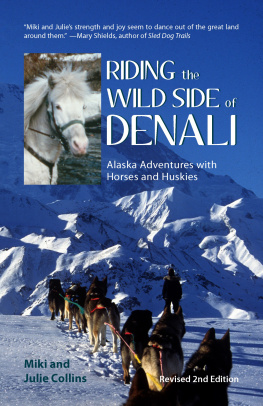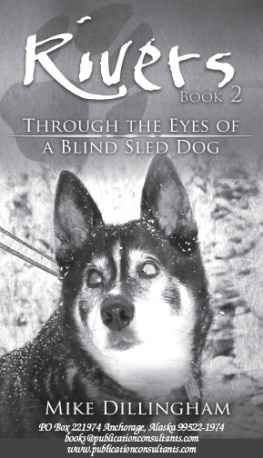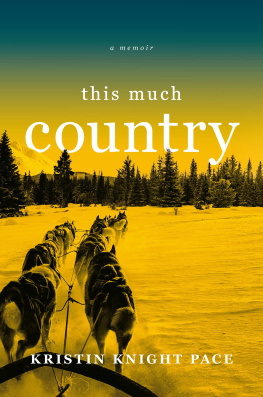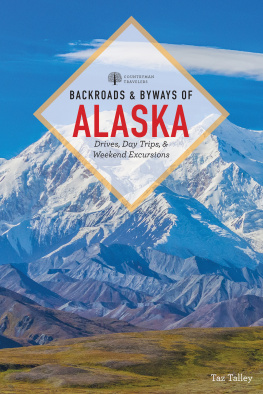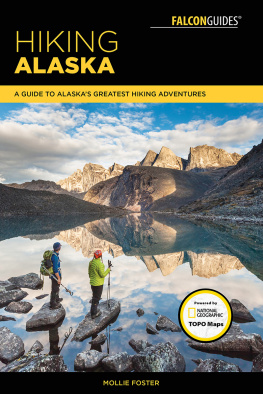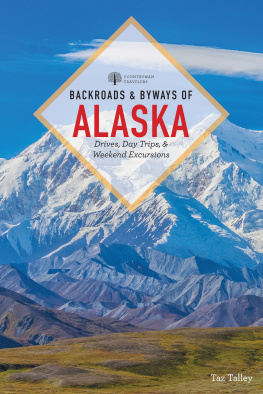Contents
Riding the Wild Side of Denali
Revised Second Editon
Julie & Miki Collins
Epicenter Press
Epicenter Press is a regional press publishing nonfiction books about the arts, history, environment, and diverse cultures and lifestyles of Alaska and the Pacific Northwest. For more information, visit www.EpicenterPress.com
Text and photography 1998 by Miki and Julie Collins.
Proofreader: Lois Kelly
Mapmaker: L. W. Nelson
Born in the U.S.A. by Bruce Springsteen.
Copyright 1984 by Bruce Springsteen (ASCAP).
Reprinted by permission.
Acknowledgments: many stories in this book appeared in different form in periodicals including Western Horseman, Sports Afield, Horse and Horseman, Mushing magazine, Mother Earth News, Fur-Fish-Game, Small Farmers journal, Up Here, Trapper and Predator Caller, Horseplay, Schlittenhund, the Whitehorse Star, the Northland News, and the Fairbanks Daily News-Miner.
All rights reserved. No part of this publication may be reproduced, stored in a retrieval system, or transmitted in any form by any means, electronic, mechanical, photocopying, recording, or otherwise, without the prior written permission of the publisher. Permission is given for brief excerpts to be published with book reviews in newspaper, magazines, newsletters, catalogs, and online publications.
Library of Congress Catalog Number: 2017941684
Print ISBN: 978-1-935347-81-1
Ebook ISBN: 978-1-935347-91-0
Produced in the United States of America
Smashwords Edition
For Lilja

Our wish was a horse and she came true.

Map
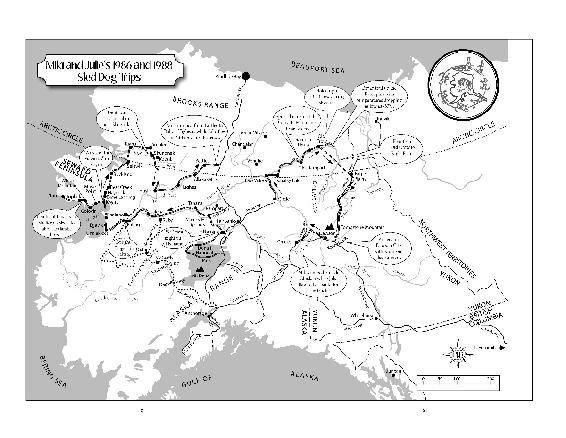

Lilja, Julie, and the dog team at the Birch Cabin on the trapline.
Preface
It has been ten years since we wrote our first book, Trapline Twins. Because not all of our adventures fit into that book, we promised another one and here it is. By the time we finished this one, so much more had happened that there still wasnt room for it all. But the important stuff is all here: how we got Icelandic horses and how we almost lost them; how we kept our huskies and how they kept us; how we use them all on cross-country treks and how we use them all at home.
We value many things in lifeour independence, our family, the mutual love and cooperation we share with our loyal animals, and perhaps above all the wilderness that we call home. We have faith in ourselves and in our horses and huskies; it is the wilderness for which we fear. Our subsistence way of life is threatened as civilization squeezes a little closer each year, but we continue to harvest fish, furs, berries, meat, firewood, and other resources from this still-isolated country. We cannot retreat because there is no place left to go. So, this book was not written to encourage would-be homesteaders; it is a how-we-do-it story, not a how-you-can-do-it book.
You may be confused at times reading this story because we take turns writing chapters. Welcome to our life. Being twins is confusing.
For years, people have asked when we would write this book. To them we say, Life is more important. We would rather be living it than writing about it. But sharing our stories is fun too, so as time allowed we pecked away and now it is done. Enjoy.
Miki and Julie Collins, 1998

Streak and Comet swim across the river by the Birch Cabin while Miki rides Lilja, our new Icelandic horse.
Chapter One - The Journey Home
Miki
The grizzly stood elbow-deep in blueberry bushes, his tawny shoulders rippling darkly as he browsed along the treeless flanks of the Alaska Range. I watched him warily from across a brushy draw, my little horse alert by my side, her blue-flecked eyes growing big and round as she stared at the unsuspecting bear. Lilja didnt look scared, exactly, but she did look terribly impressed. Comet and Streak, my two big pack dogs, waited eagerly, ready to dash after the bear the instant I might suggest it.
Earlier in the day we had left the end of the dirt road behind as horse, huskies, and I struck out across a sixty-five-mile stretch of uninhabited wilderness to reach our home. My twin sister Julie waited there with our parents, busy caring for our team of sled dogs and doing other September chores, leaving to me and the two staunch dogs the job of getting Lilja to her new home.
Our journey had only just begun, and already I was getting into trouble. Typical.
If I went forward, Id drop down into that brushy draw where I couldnt see the bear when he first heard or smelled me. If he approached, hed be right on top of me before I saw him. My best bet was to get his attention while a couple hundred yards still separated us, to see what his reaction to us might be.
Hey-ho! I sang loudly.
His massive head jerked up. The instant the grizzly caught sight of us, he wheeled toward us, coming at a swift, fluid, yet lumbering stride through the knee-high dwarf birch, not running but walking awfully darn fast.
A .45 Ruger Blackhawk revolver hung from the saddle. I snatched it from its holster, glancing at Lilja. The little horse had never been exposed to gunfire, but I decided Id rather chase a horse bolting from a shot than a horse bolting from a charging grizzly. Gripping her lead rope tightly, I squeezed off a shot into the air.
Lilja hardly twitched as the pistol boomed, bucking in my hand. The grizzly snapped to a halt, springing up on his hind legs for a better look. I fired again, and this time he spun away, loping rapidly down the shoulder of the mountain.
I reloaded the pistol and slipped it back into the holster. Then the dogs, horse, and I picked our way cautiously on around the mountainside.

As children, my twin sister Julie and I, like so many girls, craved horses. Roaming the overgrown silt bars of the Old Channel, a shallow slough flowing near our home where wildlife abounded, sometimes we would find moose tracks and pretend they had been made by wild horses. They werent, of course, but it was fun to dream. But as we grew up in Alaskas isolated Bush country, a land without roads, pastures, or even much wild grass, we set aside those unrealistic dreams. We could have moved to warmer climes, or even just to the road system within Alaska, but we belonged to the wilderness. Our parents lived here before we were born, and except for a few winters away getting a higher education, this vast subarctic land had always been our home.
For twenty-six years, we had trapped and mushed and adventured in the remote spruce-covered lowlands north of the Alaska Range. Between running sled dogs on an eighty-mile trapline in the winter, raising a large garden and fishing for dog food during the short summers, and harvesting our years meat and berries every fall, with an occasional thousand-mile dog sled trip for excitement, our lives were already full. Our love for horses was not forgotten, but Life marched on without them.

